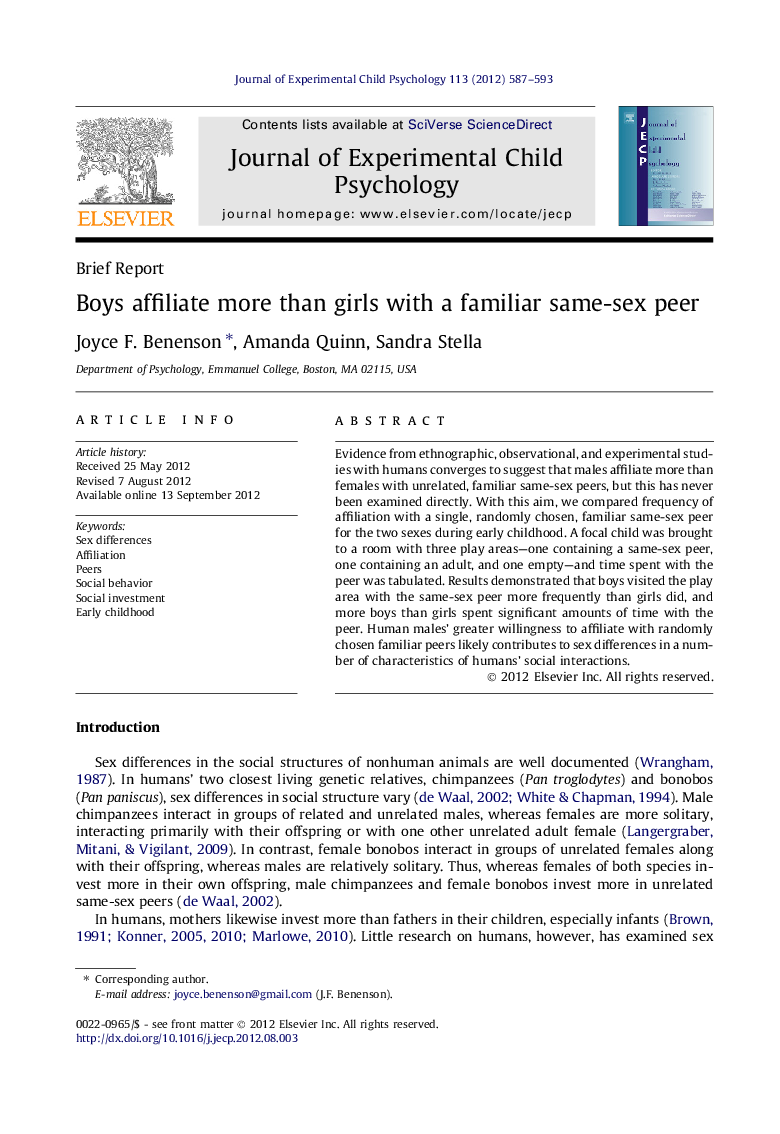| Article ID | Journal | Published Year | Pages | File Type |
|---|---|---|---|---|
| 918223 | Journal of Experimental Child Psychology | 2012 | 7 Pages |
Evidence from ethnographic, observational, and experimental studies with humans converges to suggest that males affiliate more than females with unrelated, familiar same-sex peers, but this has never been examined directly. With this aim, we compared frequency of affiliation with a single, randomly chosen, familiar same-sex peer for the two sexes during early childhood. A focal child was brought to a room with three play areas—one containing a same-sex peer, one containing an adult, and one empty—and time spent with the peer was tabulated. Results demonstrated that boys visited the play area with the same-sex peer more frequently than girls did, and more boys than girls spent significant amounts of time with the peer. Human males’ greater willingness to affiliate with randomly chosen familiar peers likely contributes to sex differences in a number of characteristics of humans’ social interactions.
► 3- to 5-Year-old boys and girls could play alone or with an adult or same-sex peer. ► Boys visited the peer more times than girls did. ► More boys than girls visited the peer for a significant time interval. ► No sex differences occurred in visits to or time spent with the adult or alone.
